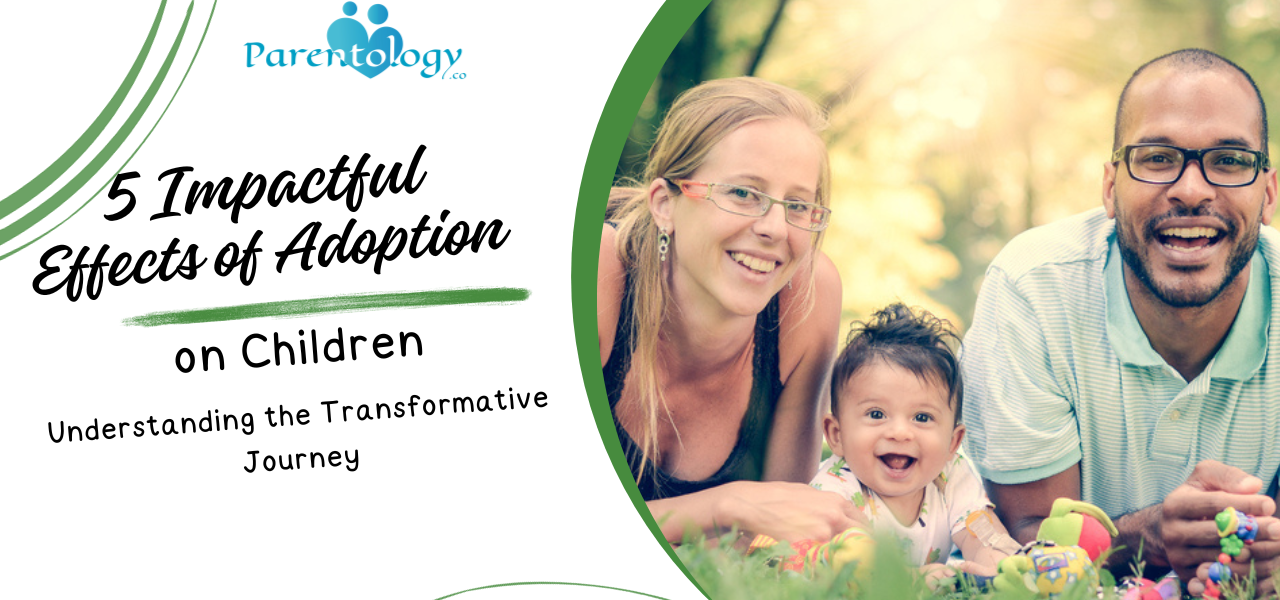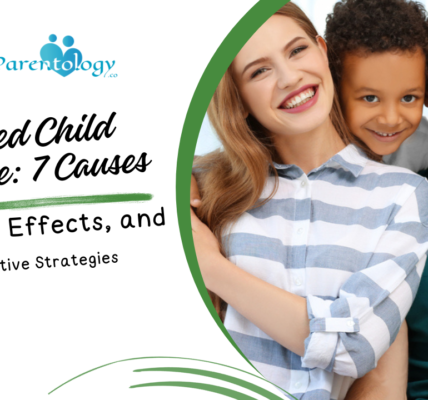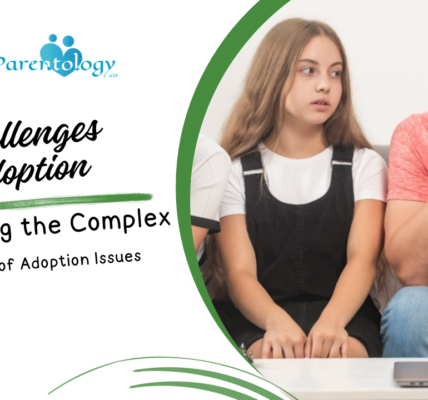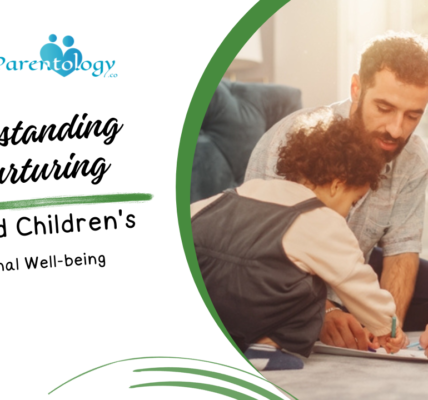5 Impactful Effects of Adoption on Children: Understanding the Transformative Journey
Adoption is a remarkable journey, not only for the adoptive parents but especially for the children embraced by new families. The effects of adoption on children are profound and diverse, shaping their lives in ways that resonate through their formative years and beyond. Understanding these impacts is pivotal in providing a nurturing environment for the adopted child. In this article, we delve into the five most impactful effects of adoption on children, shedding light on the transformative journey they embark upon.
Effect 1: Identity Formation
One of the most significant effects of adoption on children is the journey of identity formation. Adopted children often grapple with questions of self-identity, navigating the complexities of belonging to two families simultaneously. The process of understanding their origins, cultural heritage, and reconciling their past with their present shapes a unique identity mosaic for each child.


Effect 2: Emotional Resilience
Adoption can instill remarkable emotional resilience in children. From the initial adjustments to a new environment to the continuous adaptation within their adoptive families, children learn to overcome challenges, develop coping mechanisms, and cultivate resilience that molds them into strong individuals.
Effect 3: Attachment and Trust
The bonds formed between adoptive parents and children play a pivotal role in their emotional development. Building trust and secure attachments fosters a sense of safety and stability, providing a nurturing environment crucial for the child’s healthy growth and development.
Effect 4: Self-Esteem and Confidence
Adoption can significantly impact a child’s self-esteem and confidence. Encouragement, support, and positive reinforcement from adoptive families contribute to building a strong sense of self-worth, empowering children to thrive in various aspects of their lives.
Effect 5: Understanding Relationships
Navigating relationships becomes a profound aspect of an adopted child’s life. They learn to navigate complex family dynamics, friendships, and societal interactions, developing a unique understanding of diverse relationships and the importance of empathy and acceptance.


Impact of Adoption on Academic Success
The impact of adoption on a child’s academic success is an essential aspect to explore. Studies indicate that adopted children, when provided with a supportive environment and access to educational resources, exhibit resilience and determination in their academic pursuits. While some may face initial challenges adjusting to new school environments, the majority showcase remarkable adaptability and a strong drive to excel.
Adoptive families, educational institutions, and counselors play pivotal roles in providing the necessary support and guidance to aid these children in achieving academic milestones. Creating an inclusive and nurturing educational atmosphere fosters confidence and encourages a positive attitude towards learning.
Health and Well-being
Understanding the effects of adoption on the health and well-being of children is crucial. Adopted children often benefit from improved access to healthcare, leading to better physical and mental well-being. However, some may experience stress or anxiety due to the adoption process or adjustment to new surroundings.
Adoptive parents, healthcare professionals, and mental health specialists contribute significantly to addressing these concerns. Building a supportive network and ensuring access to healthcare services tailored to the child’s needs are fundamental in promoting their overall well-being.
Cultural Identity and Heritage
The preservation of cultural identity and heritage holds immense importance for adopted children. Exploring and embracing their cultural roots aids in shaping a well-rounded sense of self. Adoptive families can actively engage in cultural activities, celebrate traditions, and encourage discussions about the child’s heritage, fostering a deeper connection and appreciation for their cultural background.
Access to resources, such as cultural clubs, language classes, or heritage-focused events, can greatly contribute to an adopted child’s exploration and understanding of their cultural identity.
Support Systems for Adopted Children and Families
Various support systems and resources are available to assist adopted children and families throughout their journey. Support groups, counseling services, and online communities offer valuable insights, guidance, and a platform for sharing experiences and seeking advice. Additionally, government agencies, non-profit organizations, and educational institutions often provide workshops, seminars, and informational resources tailored to the needs of adopted children and their families.
By actively engaging with these support systems, adoptive families can gain a deeper understanding of the challenges and triumphs associated with adoption while fostering a sense of community and mutual support.


Adoption and Sibling Relationships
The impact of adoption extends to sibling relationships within the adoptive family. Siblings, both biological and adopted, experience unique dynamics that shape their bonds. Establishing healthy relationships between siblings involves fostering understanding, mutual respect, and creating an inclusive family environment. Open communication and support from parents play a crucial role in nurturing these relationships, allowing siblings to navigate their differences while cherishing their shared experiences.
Adoption and Legal Rights
Understanding the legal rights and complexities associated with adoption is essential for adoptive families. Legal procedures, documentation, and rights regarding inheritance, custody, and parental responsibilities vary across jurisdictions. Seeking legal counsel and familiarizing oneself with adoption laws ensures that adoptive families navigate the legal aspects effectively, safeguarding the rights and interests of both the child and the adoptive parents.
Impact on Birth Parents
The effects of adoption extend beyond the adopted child and impact birth parents as well. Birth parents may experience a range of emotions, including grief, loss, and a sense of longing, following the decision to place their child for adoption. Access to counseling, support groups, and resources tailored to birth parents assists in coping with emotions and navigating their journey post-adoption.
Addressing Stigma Surrounding Adoption
Challenges related to societal stigma or misconceptions about adoption can affect the adopted child and their family. Educating society about the realities of adoption, dispelling myths, and promoting inclusivity fosters a more supportive and understanding environment. Encouraging open dialogue, celebrating diverse family structures, and advocating for inclusive practices contribute to reducing stigma and creating a more accepting society for adopted children and their families.
Education and Advocacy
Education and advocacy play pivotal roles in addressing the unique needs of adopted children. Educating teachers, counselors, and professionals about the effects of adoption fosters a more inclusive and supportive school environment. Training programs, workshops, and resources dedicated to understanding the experiences of adopted children empower educators to provide tailored support, address potential challenges, and celebrate the diversity within their classrooms.
Advocacy efforts aimed at policy changes, increased access to adoption-related resources, and promoting adoption awareness contribute to creating a more supportive and inclusive society for adopted children and their families.
Post-Adoption Support Services
Post-adoption support services are instrumental in ensuring the well-being of adopted children and their families. These services encompass counseling, therapeutic interventions, and access to mental health professionals specialized in adoption-related issues. Providing ongoing support post-adoption aids in addressing challenges, nurturing healthy family dynamics, and promoting the overall well-being of the child.
Disclosure and Openness in Adoption
The level of disclosure and openness regarding adoption varies among families. Some adoptive families opt for open adoptions, maintaining contact and communication with birth families, while others prefer closed adoptions with limited or no contact. Each approach has its unique considerations, and the decision regarding disclosure and openness should prioritize the best interests of the child, considering their emotional well-being and comfort.
Navigating Adolescence and Identity
Adolescence marks a critical phase where adopted children may explore their identity and seek answers about their origins. Understanding and supporting adolescents through this journey involves open communication, providing access to resources for self-discovery, and offering a supportive environment where they feel comfortable expressing their thoughts and emotions.
FAQs:
-
Q 1: How do the effects of adoption on children differ from those raised by biological parents?
- Answer 1: While the love and care provided by both adoptive and biological parents are essential, adopted children may experience unique challenges related to identity formation, attachment, and navigating multiple family dynamics.
-
Q 2: Are there specific emotional challenges that adopted children commonly face?
- Answer 2: Yes, adopted children might grapple with issues related to identity, belongingness, and understanding their origins, leading to emotional complexities that require support and understanding from their families and communities.
-
Q 3: What role does early intervention play in mitigating potential effects of adoption on children’s development?
- Answer 3: Early intervention, such as counseling, support groups, and access to mental health services, plays a crucial role in addressing emotional needs, building resilience, and supporting healthy development in adopted children.
-
Q 4: How can adoptive parents facilitate discussions about adoption with their children?
- Answer 4: Open and age-appropriate communication, creating a safe space for children to ask questions, and providing honest and supportive answers are vital in fostering trust and understanding within adoptive families.
-
Q 5: Do adopted children face challenges in forming attachments with their adoptive families?
- Answer 5: Initially, some adopted children might experience challenges in forming attachments due to past experiences. However, with consistent love, support, and stability, most children form strong bonds with their adoptive families over time.
-
Q 6: What resources are available to help adoptive families address the unique needs of their adopted children?
- Answer 6: Various resources, including support groups, counseling services, adoption-focused books, and online forums, offer guidance and support for adoptive families navigating the challenges of adoption.
-
Q 7: Can the effects of adoption on children impact their relationships outside the family circle?
- Answer 7: Yes, adopted children may navigate relationships differently due to their unique family structure, which might lead to a deeper understanding of diverse relationships and increased empathy toward others.
-
Q 8: What are some common misconceptions about adoption and its effects on children that need to be addressed?
- Answer 8: Misconceptions, such as assuming all adopted children face severe emotional issues or that love alone can negate the effects of adoption, need to be addressed through education and awareness about the diverse experiences of adopted children.
-
Q 9: How does society’s perception of adoption influence the experiences of adopted children?
- Answer 9: Society’s perception can impact adopted children’s sense of acceptance and inclusion. Advocacy for positive adoption narratives, reducing stigma, and promoting inclusivity foster a more supportive environment for these children.
-
Q 10: Are there long-term positive effects of adoption on children’s lives despite the initial challenges they may face?
- Answer 10: Absolutely, with nurturing environments, love, and support, many adopted children grow up to become resilient individuals, thriving academically, emotionally, and contributing positively to society.
Conclusion
The effects of adoption on children encompass a wide spectrum of experiences, and influences that shape their lives in profound ways. From identity formation to academic success, emotional well-being, cultural exploration, and support networks, each aspect plays a vital role in nurturing the holistic development of adopted children.
As society continues to embrace diversity and inclusivity, understanding and supporting the unique journey of adopted children is imperative. By providing love, support, and an environment conducive to growth, we empower these resilient individuals to thrive, contributing their unique perspectives and strengths to the fabric of our communities.
For further information on adoption and its impacts, visit Parentology, where comprehensive resources and guidance await.
Remember, the effects of adoption are as diverse as the children themselves, each story deserving of compassion, understanding, and unwavering support on their remarkable journey through life.




